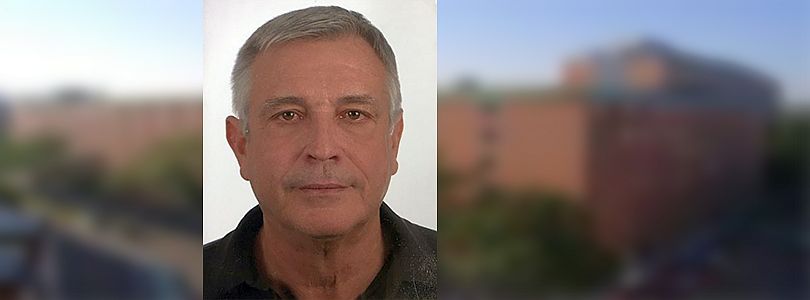Content
Thomas Walther


„The colleagues from the DPA were quite astonished that we used boilerplates on the computer to write office actions. At that time, this was not common practice at the DPA in Munich.“
Patent examiner and head of division at the AfEP and the DPMA
DPMA:You worked as an examiner at the AfEP in 1990. Was your work as an examiner at the AfEP and the DPMA basically very similar?
Thomas Walther:We had a different terminology for some things: We used the term "above-average creative performance" for "inventive step" and the term "technical expert" for "person skilled in the art". However, on the whole, intellectual property law was largely harmonised, despite the differences of the political systems. For example, we also had a representative at the World Intellectual Property Organization in Geneva.
We were very fortunate in that respect, because, after the fall of the Berlin Wall, we were very quickly able to work as patent examiners at the German Patent Office – after having attended appropriate further training.
DPMA:What happened in the period before 3 October?
Thomas Walther:During the six-month period before German reunification, the two Presidents of the Patent Office, Erich Häußer and Joachim Hemmerling, had been keeping in constant contact. The aim was to adapt the structure of the AfEP. However, as the basic organisations of both offices were quite similar, they reached agreement fairly quickly.
In this context, the issue of filling of senior management positions was also addressed. Our heads of office had already appointed people for this purpose. But then it was said: "Let’s ask the staff representatives." And these representatives did not agree with one or the other proposal. Since I was then head of an "examination and search unit" (comparable to today’s group leader of a patent division at the DPMA) and this examination unit was the largest in the field of electrical engineering, I was appointed head of division until reunification.
DPMA:What was your task resulting from this measure?
Thomas Walther:I was a "point of contact" – every week a different head of division from Munich came to me. At these meetings, decisions were made on how to proceed and on the set-up of the division – for example, organisation, circulation of files and forms: How did it work before, how should we do it now? It went on like this until reunification. After reunification, it was said: All staff in senior management positions and all party officials will not be taken on by the DPA.
DPMA:However, you were employed after all?
Thomas Walther:Yes. I was a special case, because I had got the job as head of division in a "semi-democratic" way, and I had not really wanted to do this job. So I was taken on as an examiner after all. But first, the patent files I had worked on were checked. In addition, I had to submit a lot of documents, such as proof of my German descent. And of course we were checked by the Bundesnachrichtendienst (the foreign intelligence service of Germany) and the "Gauck Behörde" (Stasi records agency).
One day after reunification, we all received a letter that we would be taken on temporarily for three months. Ms Leutheusser-Schnarrenberger personally handed me my letter; she was the personnel manager at the DPA at that time. Shortly before Christmas, we were offered permanent employment for an indefinite period – with a "Munich clause".
DPMA:So it became clear to you fairly quickly that you had to go to Munich?
Thomas Walther:There were considerations to move the patent office back to Berlin to the old building of the Imperial Patent Office (Reichspatentamt) on Gitschiner Strasse. In between, however, Munich examiners also submitted a petition to the German Bundestag asking for the patent examination area not to be split or relocated but left as a whole in Munich. As head of my department, I was contacted by representatives of the Beamtenbund (civil service federation), of the Verdi trade union for the public service, then ÖTV, and of the examiners' association, among others. They all came for meetings to find out how we at the AfEP were carrying out examinations. To provide a better understanding, we organised job presentations at our division for them.
DPMA:Job presentations?
Thomas Walther:Yes – job presentations. That was interesting. The colleagues from the DPA were quite astonished that we used boilerplates on the computer to write office actions. At that time, this was not common practice at the DPA in Munich.
But all in all we were very happy that the DPA was so concerned about us and our transfer to the DPA, and that the heads of division from Munich also put so much effort into it.
DPMA:Let’s get back to moving to Munich ...
Thomas Walther:As far as moving to Munich was concerned, for a large part of the staff it was hard to imagine. You need to know that more than 50 per cent of our staff were women. After all, such a move affects the entire family, so it meant a fresh start for everyone. We were grateful that the DPA was always committed to taking personal concerns into account during the transfer process.
DPMA:How did things go on for you personally?
Thomas Walther:As a single father, I moved to Munich with my son and was happy to get an apartment for federal civil servants in the former American housing area in the southeast of Munich. I also got a place for my son at the day-care centre of a nearby primary school.
At that time, my first position was in Division 1.34. The predominant opinion of many long-established patent examiners was: "They cannot yet perform examinations. They had completely different legislation." The heads of division assessed us as quite independent. We only needed what they called "accompanying support". We were what was called "lateral entrants". I came to the DPA as a Regierungsrat, but I didn’t have to undergo the three-year training again. We were immediately appointed members of the patent office and granted authorisation to sign. My other colleagues from the AfEP also quickly learned the ropes here after participating in the training measures and soon became established in their jobs.
DPMA:That sounds like a quite easy settling in in the West – but surely it was not that easy?
Thomas Walther:No, sometimes it was not easy at all. We, the colleagues from the AfEP, knew each other’s personal concerns and worries. We supported each other, which helped us a lot. Some colleagues from the DPA, who themselves had to wait 16 years for their promotion to the grade of Regierungsdirektor, were surprised that I was appointed Regierungsdirektor as early as at the age of 40.
In 2006, I joined the newly established division 1.55 and was able to take my fields of examination, "open-loop and closed-loop control" and "technical installations", with me. After having worked as a supervisor and as "classification and documentation officer" and later as group leader, I was again appointed head of division ten years ago. This is a task which I still enjoy to this day.
Last updated: 10 December 2025

Not only protecting innovations
Social Media